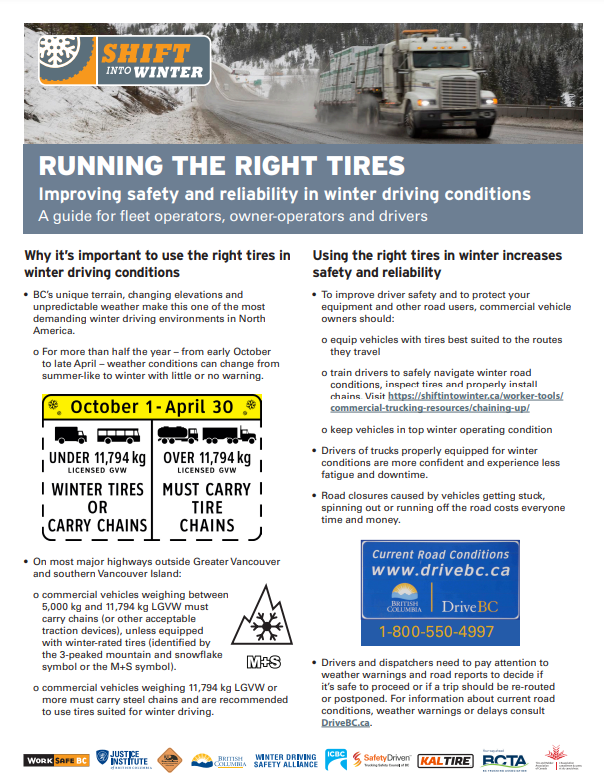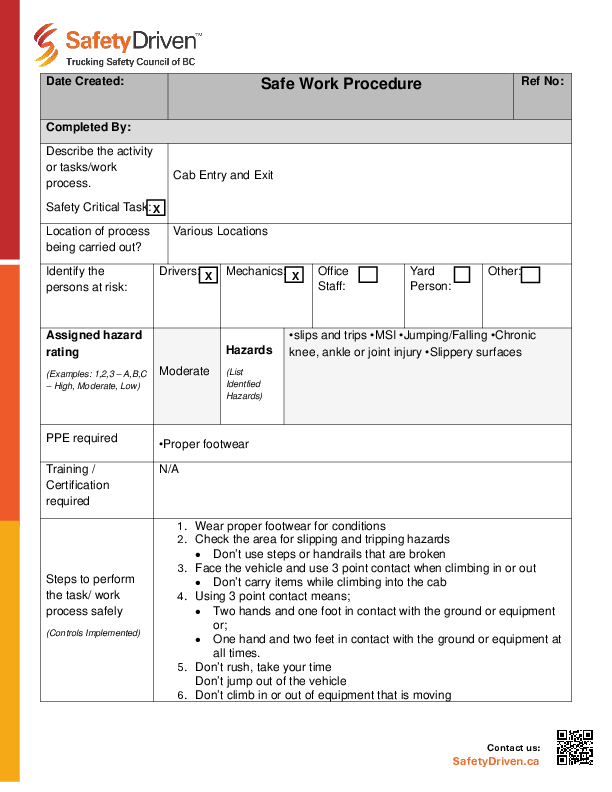
Transport Canada defines distracted driving as what happens “when a driver’s attention is taken away from the driving task because they are focused on something else.”
Distracted driving isn’t just about cell phones. Think of what you see each day as a professional driver—people eating, drinking, shaving, applying makeup while driving. In other areas of our lives, doing two or more things at once is called multi-tasking; many people consider it a special skill. But it’s not and doing it behind the wheel is a bad idea.
The truth is, our brains are not meant to do more than one thing at a time. A Stanford University study found multi-tasking is actually less productive than doing one thing at a time. The research showed when people are regularly overloaded with information, especially electronic information, they cannot pay attention, recall information, or switch tasks as well as those who complete one task at a time.
Those who think they have a gift for multi-tasking are just kidding themselves. The Stanford study compared people based on how much they multi-task and their belief that they perform well. The results showed that heavy multi-taskers were actually worse at multi-tasking than those who preferred to do one thing at a time. It also showed multi-taskers had more trouble getting organized and filtering out unnecessary information and were slower at switching from task to task.
Additional research at the University of London showed multi-tasking actually lowers IQ. They studied people multi-tasking during activities that require thinking and found men lose about 10 IQ points while they multi-task (women are less affected). At first, the research suggested this effect was temporary, but new research by the University of Sussex found that heavy multi-taskers have less brain density in the area of the brain responsible for understanding, empathy, and emotional control.
Professional drivers become so good at frequent driving tasks they don’t have to think about doing them, such as using the turning indicator or checking mirrors before changing lanes. You do it without conscious effort. But if you add another task—talking on your phone, listening to your GPS, eating—you put pressure on your brain to keep the automatic processes going plus do the other things. The more pressure you apply, the more errors you’ll make and the less ability you’ll have to perform the task well.
Clearly, multi-tasking behind the wheel—or driving while distracted—is not a good practice. Just driving requires a lot from your brain—it’s busy understanding your surroundings, coordinating your movements, remembering related experiences, and analyzing options for things that could happen.
The need to pay attention keeps your prefrontal cortex active while you drive. That section spans both sides of the brain, which work together to keep you focused. But when you divide your focus, you force the two sides to work separately. You lose focus; you’re distracted.
Doing two or more things at once makes your brain switch its attention frequently. The more you multi-task, the more difficult it becomes to focus on one thing. When you lose focus, getting your mind back on track takes time. When you’re steering tons of machinery down a road at 80 kph, taking five seconds to look at your phone and then refocus is like driving the length of a football field blindfolded.
In BC, distraction causes 27% of annual traffic fatalities—that’s 81 deaths. Speeding causes 94 deaths and impaired driving 78. Research has shown that you lose 50% of your awareness when you talk on a cellphone while driving and are five times more likely to crash. In a 2015 Ipsos survey, 90% of BC drivers surveyed rated texting as more dangerous than drinking and driving but 20% of them admitted doing it. Apparently, people think only other people are dangerous when they drive distracted.
Know the brain’s limitations. Don’t multi-task behind the wheel.
Latest Resources
Running the Right Tires
Road Safety at WorkUse this guide for fleet operators, owner-operators, and drivers to help improve safe ...
Safe Work Procedure: Cab Entry & Exit
An Employer can make use of a safe work procedure (SWP) by training new and existing ...

